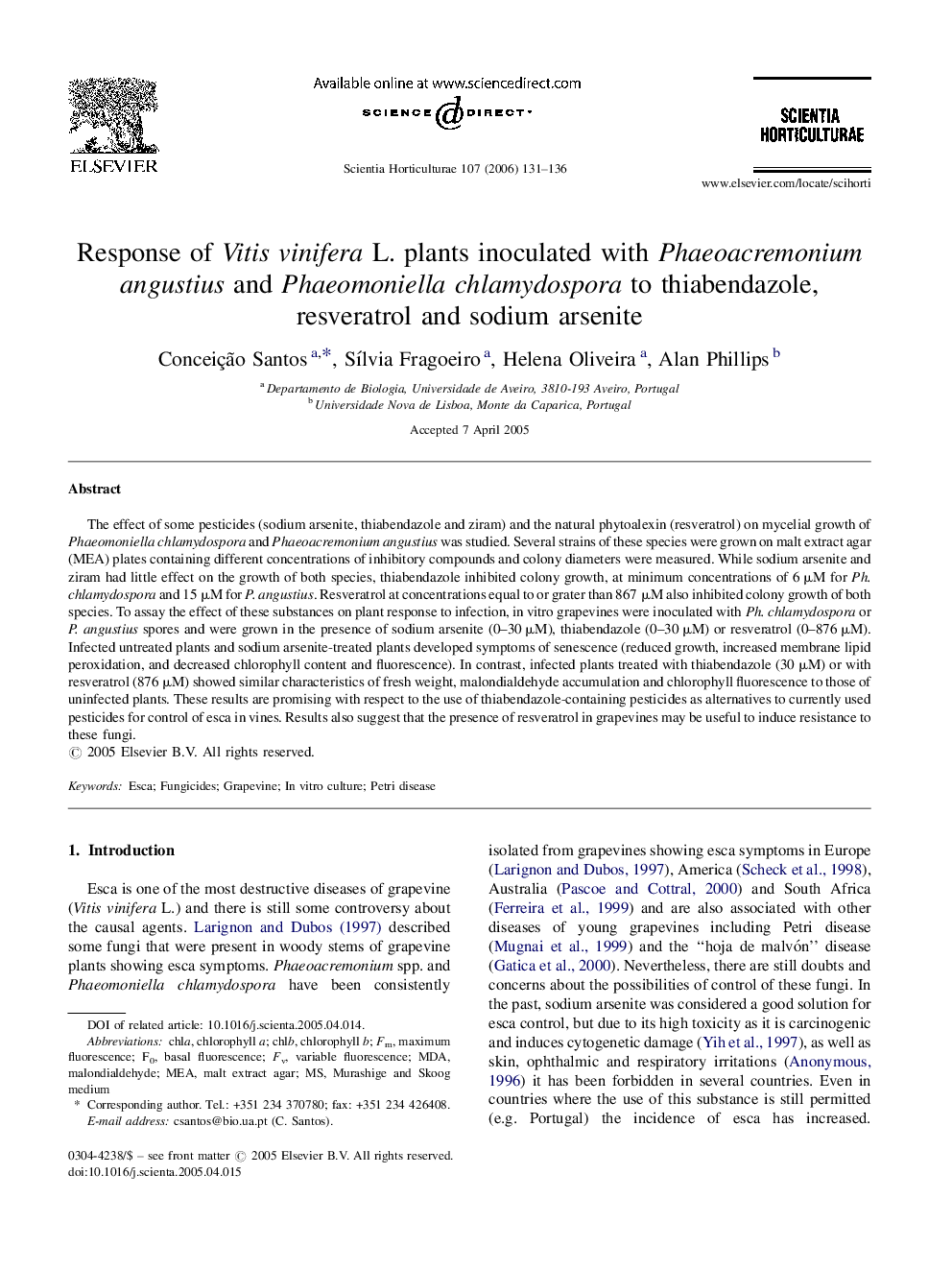| کد مقاله | کد نشریه | سال انتشار | مقاله انگلیسی | نسخه تمام متن |
|---|---|---|---|---|
| 4570157 | 1331375 | 2006 | 6 صفحه PDF | دانلود رایگان |

The effect of some pesticides (sodium arsenite, thiabendazole and ziram) and the natural phytoalexin (resveratrol) on mycelial growth of Phaeomoniella chlamydospora and Phaeoacremonium angustius was studied. Several strains of these species were grown on malt extract agar (MEA) plates containing different concentrations of inhibitory compounds and colony diameters were measured. While sodium arsenite and ziram had little effect on the growth of both species, thiabendazole inhibited colony growth, at minimum concentrations of 6 μM for Ph. chlamydospora and 15 μM for P. angustius. Resveratrol at concentrations equal to or grater than 867 μM also inhibited colony growth of both species. To assay the effect of these substances on plant response to infection, in vitro grapevines were inoculated with Ph. chlamydospora or P. angustius spores and were grown in the presence of sodium arsenite (0–30 μM), thiabendazole (0–30 μM) or resveratrol (0–876 μM). Infected untreated plants and sodium arsenite-treated plants developed symptoms of senescence (reduced growth, increased membrane lipid peroxidation, and decreased chlorophyll content and fluorescence). In contrast, infected plants treated with thiabendazole (30 μM) or with resveratrol (876 μM) showed similar characteristics of fresh weight, malondialdehyde accumulation and chlorophyll fluorescence to those of uninfected plants. These results are promising with respect to the use of thiabendazole-containing pesticides as alternatives to currently used pesticides for control of esca in vines. Results also suggest that the presence of resveratrol in grapevines may be useful to induce resistance to these fungi.
Journal: Scientia Horticulturae - Volume 107, Issue 2, 10 January 2006, Pages 131–136